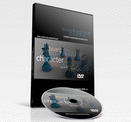WHY CHESS? It Develops GRIT!
In the book, "How Children Succeed", Paul Tough argues the need for assessment and development of "grit" as studied by Angela Duckworth at The University of Pennsylvania. Duckworth explains below her findings. She and Tough conclude that efforts are needed to develop "grit." Character Chess is one of the only interventions unique designed to address this concern.

